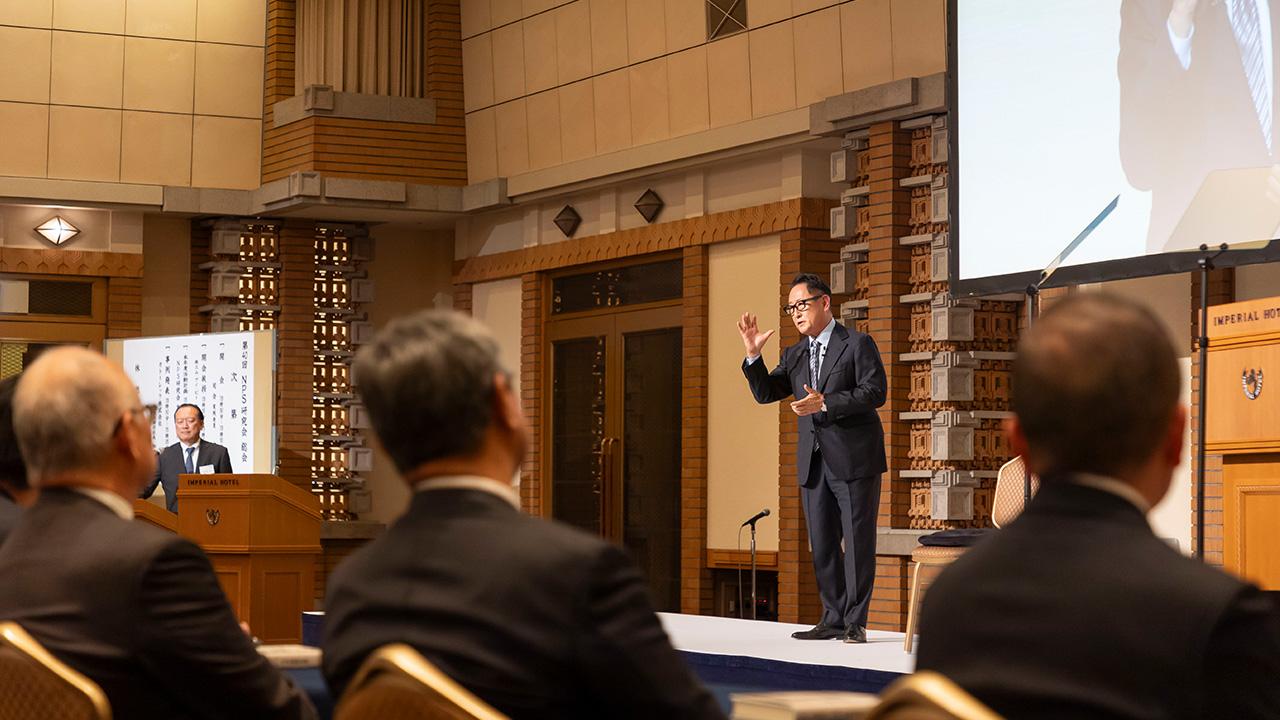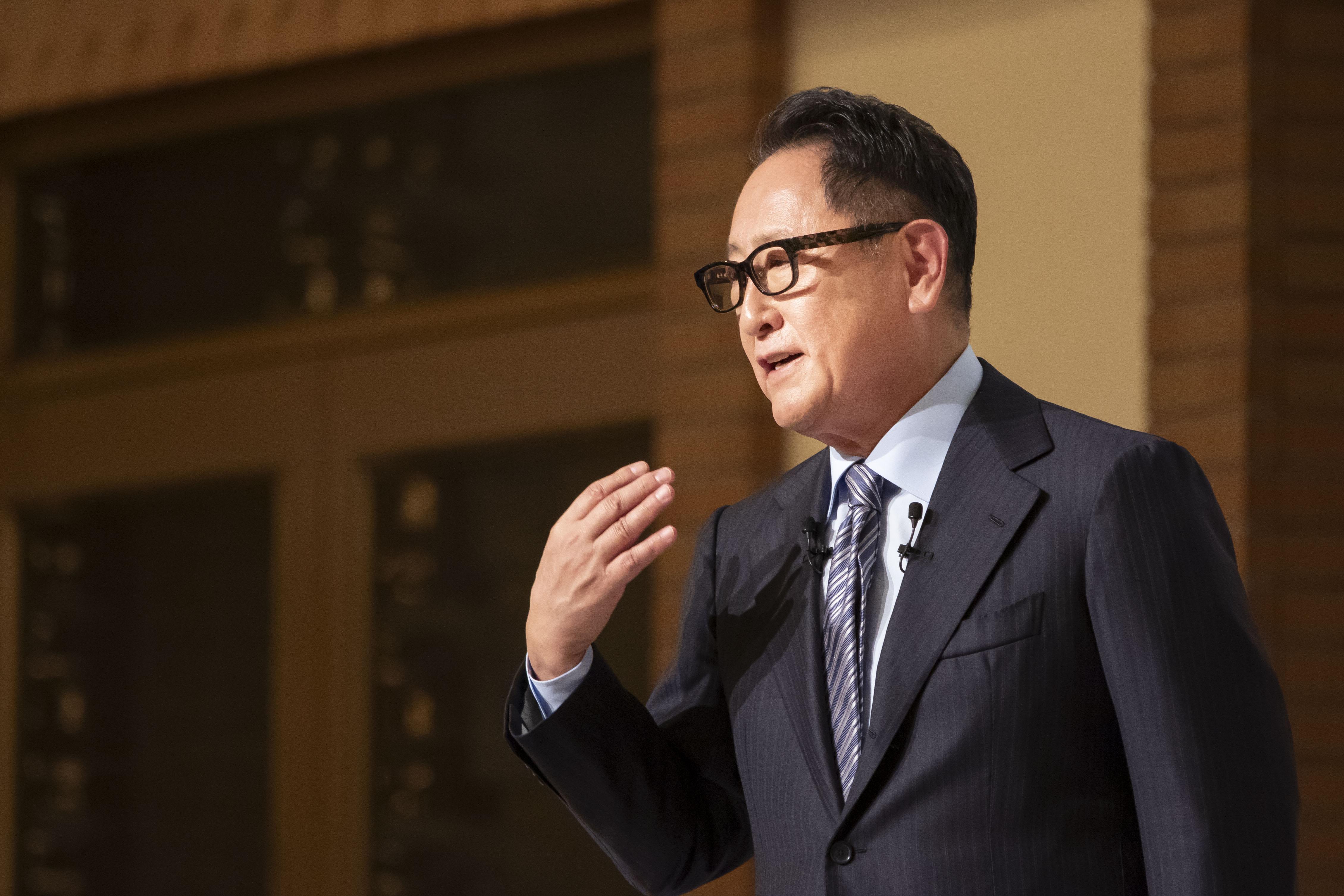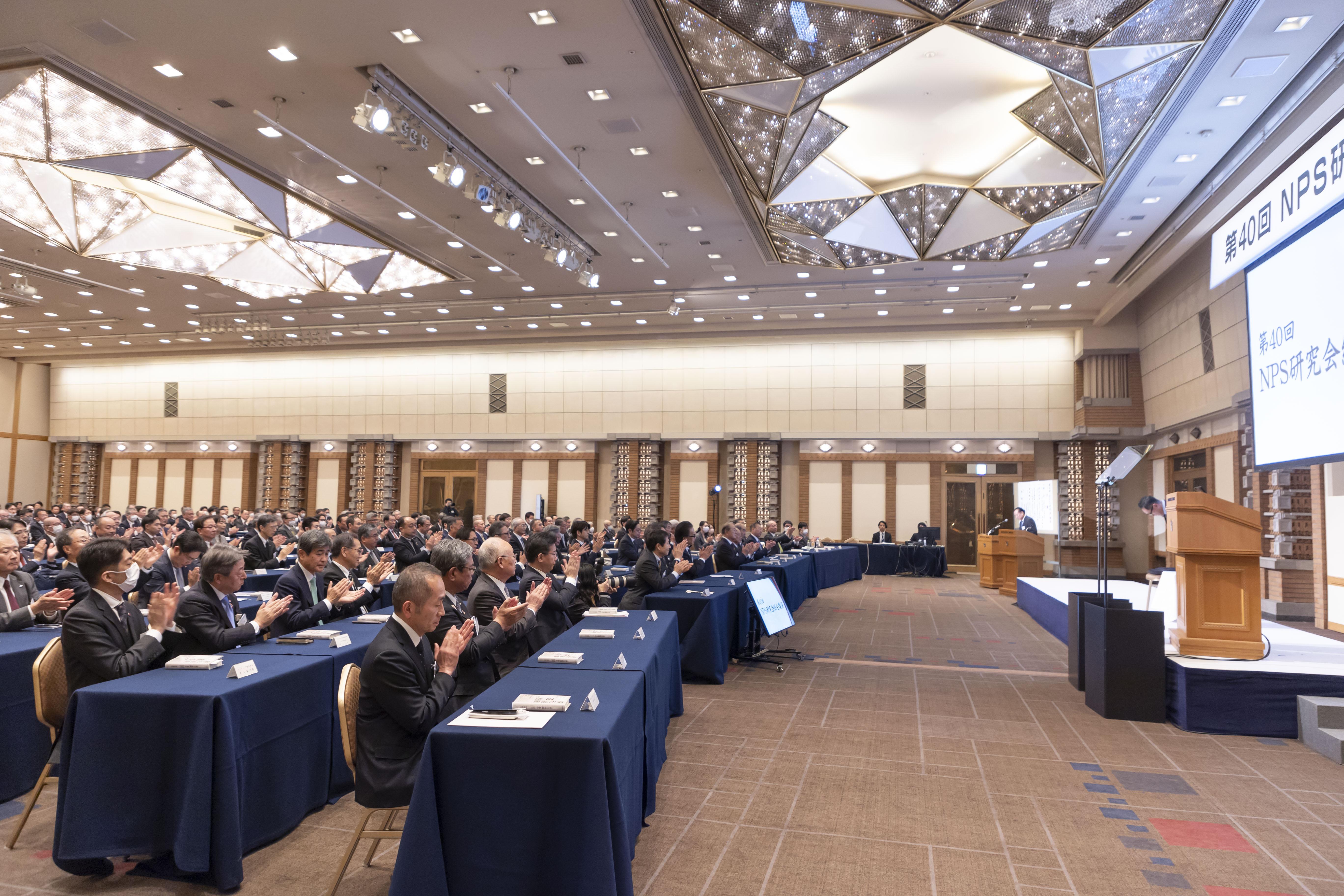
Chairman Akio Toyoda gave a lecture on the Toyota Production System to an audience of 200 corporate managers and executives. During the Q&A session, he answered questions on leadership and management decisions.
Making decisions and taking responsibility
Could you share some insights on being a top leader?
Chairman Toyoda
I don’t think I’m in a position to give instruction, but I can break down my work as a manager to just two things: making decisions and taking responsibility. These are the two aspects I have always viewed as a manager’s job.
When employees come to consult me, they likely do so as a last resort.
As such, I want to respond in such a way that, upon leaving my office, they will know what to do.
Since I also cannot foretell the future, those responses may not always be correct. And yet, I hope that by stepping outside my office and doing something, they will at least gain a broader perspective.
If they make mistakes, I will bear the responsibility. Saying as much is easy, but the key lies in following through.
If you show that you are prepared to act when something troublesome comes along, I think that makes a big difference.
In my case, I think it was like, “Hurry up and quit to take responsibility for the company’s poor performance—that’s your role.”
But I was able to come this far because of the ongoing crises. In that situation, no one knows the solution. I was prepared to say, “Don’t worry about the outcome. Give it a go,” and to face the public when things didn’t go well.
I believe that demonstrating this attitude time and again is important.
These days, I feel that the Japanese media plays an outsized role in fanning divisions and vilifying people.
The future belongs to children and those with a long life ahead. What we demonstrate to them as adults will also be important.
Today’s adults must act with initiative, express their gratitude, and help each other. That will create countless smiles. Unless we build such a world, our children will likely flee this country in droves.
I believe you can earn many supporters by showing that you can lead from the front when things get tough.
The past, present, and future of corporate management
What message would you like to share with Japan’s manufacturing industry or to future generations?
Chairman Toyoda

I consider corporate management in terms of the past, present, and future. The present exists because of the past. Likewise, the world of the future is shaped by what we do now.
It’s the same at work: you have units dealing with the past and departments focused on generating income in the present. And people conducting cutting-edge R&D for the future.
When it comes to corporate management, however, I believe a crucial aspect is creating relationships of mutual gratitude.
Those who are looking ahead can work for the future because they see what was done in the past and what others are doing now.
Meanwhile, those focused on the past and present encourage them to work hard for a shared future—“We’ll keep earning, so you can have these resources.”
I believe that when everyone feels they are helping each other, the company becomes an incredibly strong entity.
As managers, our job is to ensure that it is not all about the people working for the future or pursuing new projects.
I believe that all work has meaning. There is no such thing as good work or bad work.
If I’m going to do something, I want to make many people happy in the process.

In answering these questions from Japan’s monozukuri leaders, all of Chairman Toyoda’s responses stemmed from his own actions and a genchi-genbutsu approach that always sought to discover the facts firsthand.
Knowledge of the genba trumps all. Continuous improvement. Working for someone other than ourselves. Knowing when to stop. Respecting people’s ability to think and come up with ideas. Monozukuri is about developing people…
The values glimpsed in each of Akio’s answers could clearly be traced back to the teachings and perspective of TPS.
*NPS & the NPS Management Institute
Standing for the “New Production System,” NPS is a management approach centered on efficient manufacturing that adapts flexibly and rapidly to environmental changes.
The Management Institute was launched in 1981 under Mikiya Kinoshita (Ushio Inc.), Kagetami Kawasaki (Oiles Corporation), and Masahito Hoashi (Kibun Foods Inc.) as an independent research group aiming to establish a New Production System.
Viewing TPS as a management philosophy that can be applied to sectors beyond automobiles, the institute currently has more than 45 member companies or one per industry.
In 1982, Taiichi Ohno, the former Toyota Motor Co., Ltd. Vice President who codified TPS, was appointed as the institute’s first chief advisor. Last year, Toyota Executive Fellow Shigeki Tomoyama became the fourth person to serve in the role.

